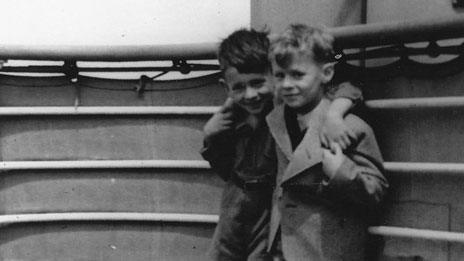Paris attacks: Why is 1939 invoked in Syrian refugee debate?
- Published
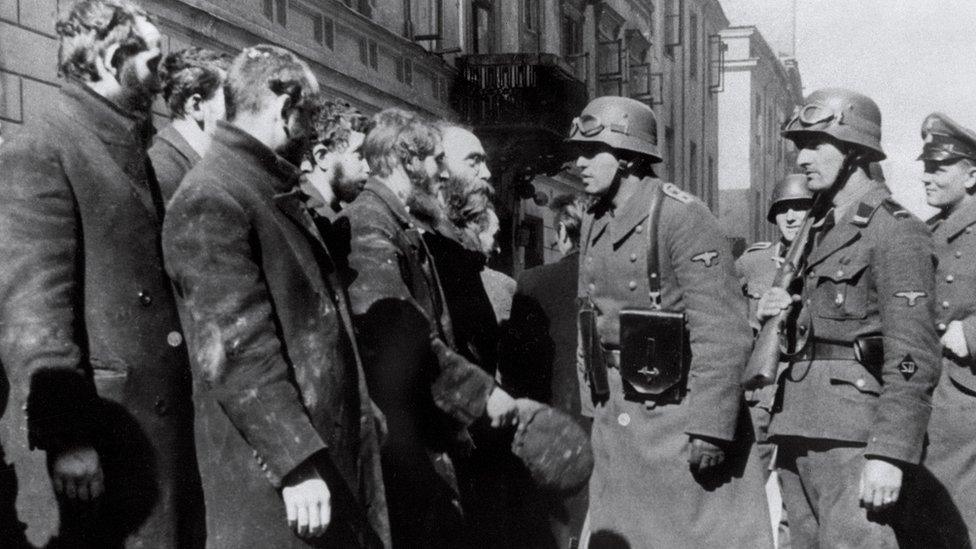
The recent controversy over resettling Syrian refugees on US soil has some critics drawing comparisons to the plight of Jews fleeing the Nazi Holocaust during World War 2.
Following last week's Paris attacks, numerous Republican presidential candidates have called on the Obama administration to suspend plans to issue visas to 10,000 of the millions of Syrian refugees who have fled the growing conflict in their home country.
In addition several dozen governors have said, external they will take whatever steps possible to block Syrian refugees from entering their states. Senator David Vitter, running for governor of Louisiana, released a television advert, external alleging that his Democratic opponent will allow Islamic militants to threaten their citizens.
Presidential candidates such former Florida Governor Jeb Bush and Texas Senator Ted Cruz have said the US should give preference to Christian refugees and help Muslims fleeing Syria to relocate to other Muslim nations.
Such religious tests, writes, external Janell Ross of the Washington Post, are obscene in "a country where early settlers arrived seeking riches and freedom to practise their faith".
She is one of many who have raised a Jewish Holocaust analogy.
"Just before and during World War 2, the decision to cast group suspicion on European Jews and deny most entry on the grounds that with relatives and ties to Europe they might be spies or vulnerable to forced spying helped cost innumerable lives during the Holocaust," she writes.
Several writers specifically mentioned, external the story of the St Louis, a cruise ship carrying more than 900 Jewish refugees from Germany that was denied entry into Cuba and then the US.
The ship was forced to return to Western Europe, where a quarter of the refugees eventually died in the Holocaust.
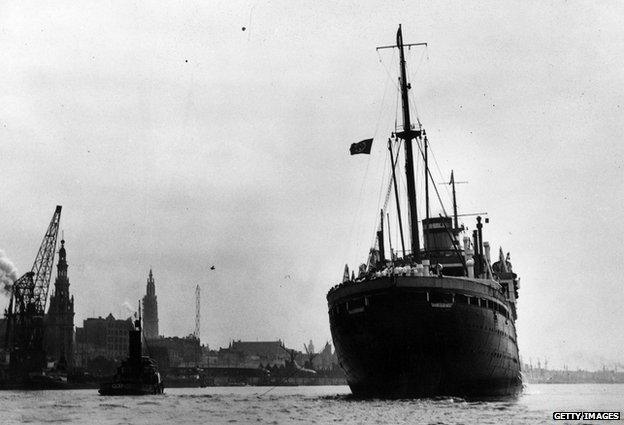
The St Louis, carrying nearly a thousand Jewish refugees, was denied entry to the US during World War 2
David Bier of the Niskanen Center writes, external that in 1940 US State Department "essentially endorsed the decision to turn back the St Louis", as it recommended Caribbean nations continue to refuse entry for Jewish refugees for fears that "spies had infiltrated the refugee stream".
"The refugee has got to be checked because, unfortunately, among the refugees there are some spies, as has been found in other countries," President Franklin Roosevelt said at the time, external.
Others critics have drawn parallels between today's rhetoric and public sentiments expressed in the late 1930s.
They cite a 1938 Fortune magazine poll, external asking Americans whether European political refugees should be allowed to enter the US. Nearly 70% said "with conditions as they are, we should try to keep them out". Only 5% said the US should raise immigration quotas to allow more entries.
The following year, 61% of the US public said, external the government should not admit "10,000 refugee children from Germany - most of them Jewish".
Contrast that with comments by New Jersey Governor Chris Christie, who is also seeking the Republican presidential nomination, who said, external on Monday that the US should deny entry to all Syrian refugees - including orphans under the age of five until they can receive "appropriate vetting".
"Most Western countries regarded the plight of Jewish refugees with scepticism or unveiled bigotry (and sympathy only followed wider knowledge of the monstrous slaughters of the Holocaust)," the Washington Post's Ishaan Tharoor writes, external. "It's worth remembering this mood when thinking about the current moment, where the United States is once more in the throes of a debate over letting in refugees."
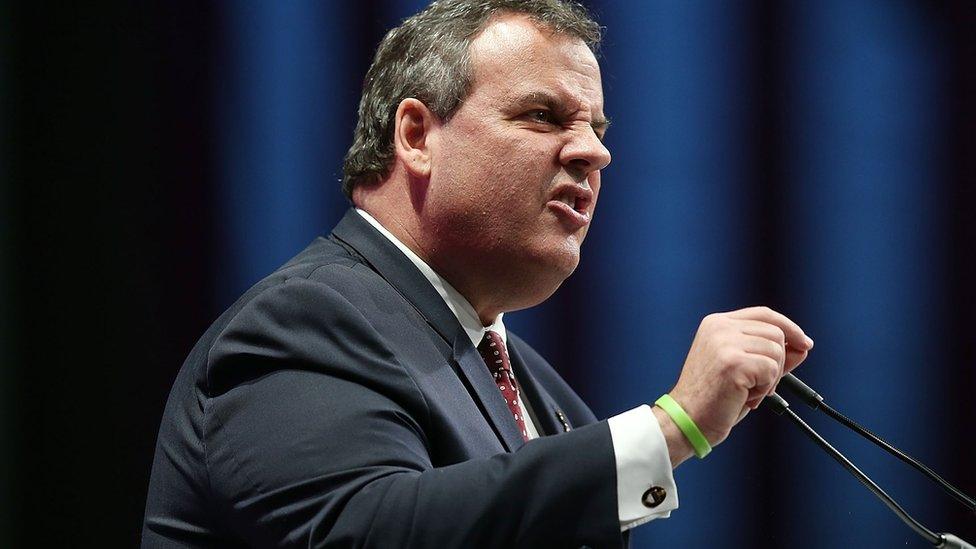
Chris Christie says Syrian orphans should not be allowed entry into the US until they can receive "appropriate vetting"
Vox's Max Fisher is more direct in his criticism of the rhetoric now dominating the Republican presidential campaign.
"American politicians are acting to punish innocent men, women and children because they fear people who are different," he tweets, external. "It's as if history never happened, as if we have no precedent or past we might learn from."
Ed Striker, editor of the conservative website NewsMachete, calls, external such historical analogies offensive.
"Jews who came to America were not themselves violent," he writes in the American Thinker. "They did not strap bombs on themselves and blow themselves up in theatres; they did not go into restaurants and execute diners, one by one; and they did not attempt to set up a caliphate wherever they moved to, although they did tend to dominate the deli, bagel-making and stand-up comedy fields."
He says Muslim refugees support sharia law and are intolerant of other religions, and a "large subset" want to kill people of other religions.
The Wall Street Journal's editors write, external that while the recent push to close the US border to Syrian refugees is regrettable, it's the result of Mr Obama's failure to take what they see as common-sense steps to safeguard the US against the threat of Islamic militants.
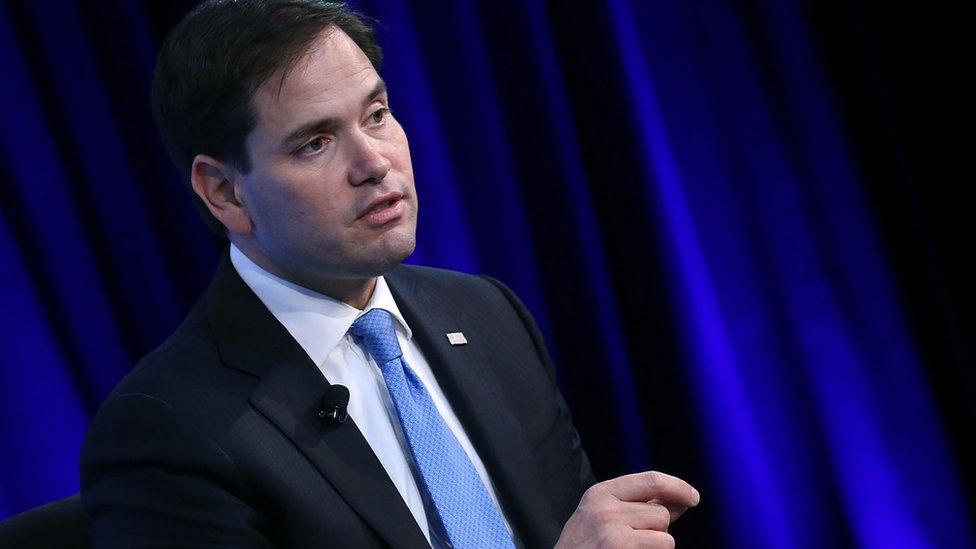
Marco Rubio compares "militant Islam" to Nazi Germany
"Metadata collection or surveillance of mosques or Muslim students doesn't compare to what a frightened American public might support if a Paris-like event occurred on Rush Street in Chicago or the Mall of America in Minneapolis," they write. "The internment camps for Japanese-Americans in World War 2 were a shameful period in US history, but FDR, a progressive hero, allowed the camps under political pressure after Pearl Harbor."
World War 2 analogies are by no means restricted to the left, however.
On Sunday Republican presidential hopeful Marco Rubio criticised Democratic front-runner Hillary Clinton for failing to say the US is "at war with radical Islam.
"I don't understand it," the Florida senator said during an ABC interview, external. "That would be like saying we weren't at war with the Nazis, because we were afraid to offend some Germans who may have been members of the Nazi Party, but weren't violent themselves."
Jonathan Chait of New York Magazine says, external that such a metaphor implies that "the Muslim faith as a whole is equivalent to Nazism, and violent jihadi terrorists are the equivalent of the Nazi leadership."
Immigration was already a superheated topic among presidential candidates before Friday's Paris attacks.
Now, however, the debate has become laced with issues of national security and morality - and allusions to a dark chapter in 20th Century history.
- Published16 November 2015
- Published17 November 2015
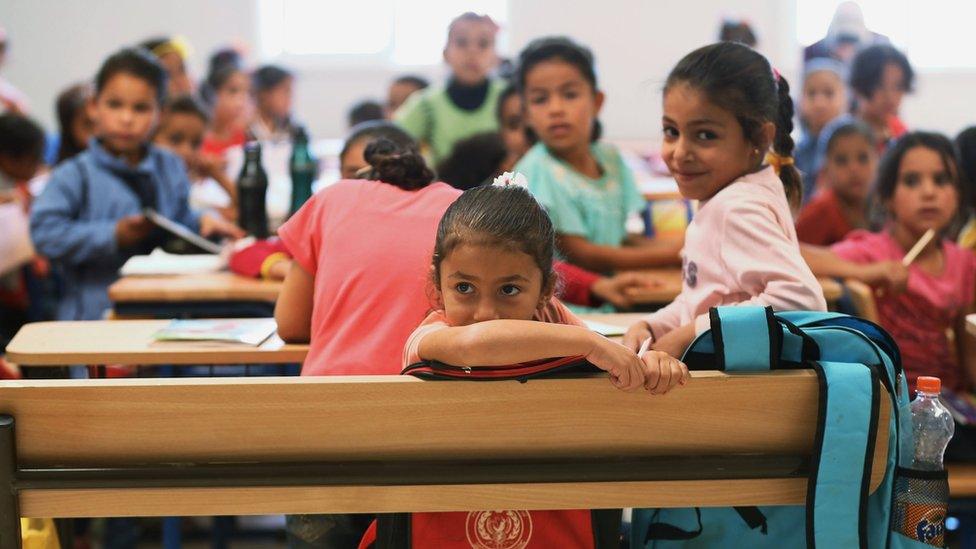
- Published13 May 2014
